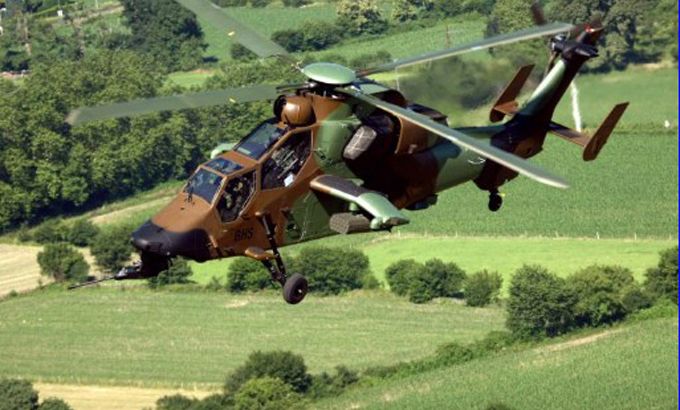Attack helicopters to boost NATO in Libya
France and Britain will send attack helicopters to better target Gaddafi forces, while NATO strikes rattle Tripoli.

French officials have confirmed that France and Britain will send attack helicopters to Libya in the latest effort to ramp up NATO’s targeting power against Muammar Gaddafi’s forces.
Alain Juppe, France’s chief diplomat, affirmed on Monday the proposed use of helicopter gunships – a move Jupee says is in line with a United Nations resolution that calls for the protection of Libyan civilians and NATO’s military operations.
“What we want is to better tailor our ability to strike on the ground with ways that allow more accurate hits,” Juppe said.
Gerard Longuet, the French defence minister, said Britain was also sending sending helicopters while London kept mum.
“We are not in the habit of talking about any new missions we undertake until they are in operation,” a British government spokesman said.
Air strikes
NATO forces have been bombing Gaddafi forces in defence of civilians since late March, but the strikes have not yet been enough to break a deadlock between rebel and government forces.
The coalition forces stepped in after a UN Security Council resolution instituted a military operation against Gaddafi forces, an arms embargo, a freeze on Libyan leaders’ personal assets and travel bans on senior figures after the Libyan leader Gaddafi’s violent crackdown on the popular uprising which began in February.
The French daily Le Figaro reported 12 helicopters were shipped to Libya on the French warship Tonnerre on May 17.
According to Le Figaro, French special forces, who have been in Libya to identify targets for NATO since the start of air strikes, could now be reinforced to guide helicopter attacks.
‘No game changer’
Shashank Joshi, an Associate Fellow at the Royal United Services Institute thinktank, says the attack helicopters can facilitate better precision targeting at the cost of being more vulnerable to ground fire.
“Attack helicopters can fly low and slow. Fast jets can only fly high and, as the name suggests, are extremely fast. So attack helicopters allow you to hit things on the ground with precision,” Joshi told Al Jazeera.
“It can be hit by small arms fire it could be hit by a shoulder-launch portable missile, and all of that means there is a risk now of NATO personnel being shot down.”
The helicopters’ deployment does not signal an escalation in NATO’s mission in Libya, but rather an expression of increasing anxiety in London and Paris over the continuing deadlock, Joshi explained.
“It is an escalation in the means being used to pressure Gaddafi … but it is not an escalation of the actual mission,” he said.
“The mission is still regime change and it’s just one more military instrument that reflects there is British and French anxiety that this stalemate could now harden.”
While the helicopters are precise to a certain degree, they are not powerful enough to function as “a game changer,” because “they can’t really affect the battle deep inside Libya nor can they really attack people deep inside buildings or buried inside urban areas.” Joshi added.
Explosions in Tripoli
Meanwhile, repeated NATO air strikes shook the Libyan capital Tripoli early on Tuesday, with a column of smoke rising over the neighbourhood where Gaddafi’s Bab al-Aziziya residence is located.
Reports said early Tuesday seemed to be the heaviest night of bombing of Tripoli since the beginning of NATO’s air campaign.
More than 20 air strikes occurred in less than 30 minutes, with explosions rattling windows and booms shaking buildings.
Witnesses said five powerful blasts were heard in the area, preceded by a whistling noise and the formation of red balls in the sky.
People’s screams and shouts and crackling of anti-aircraft fire could be heard outside a hotel where journalists are staying.